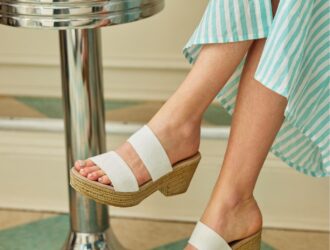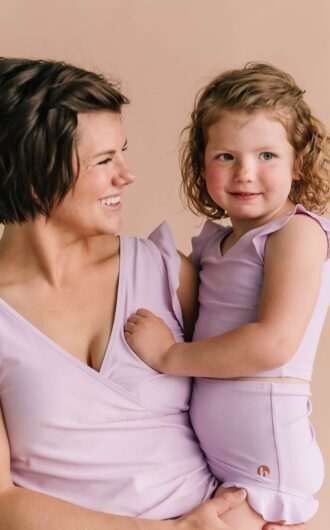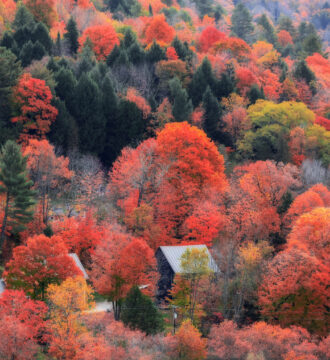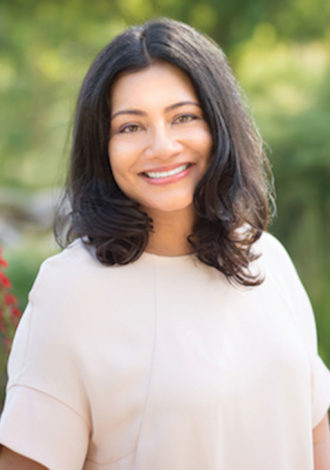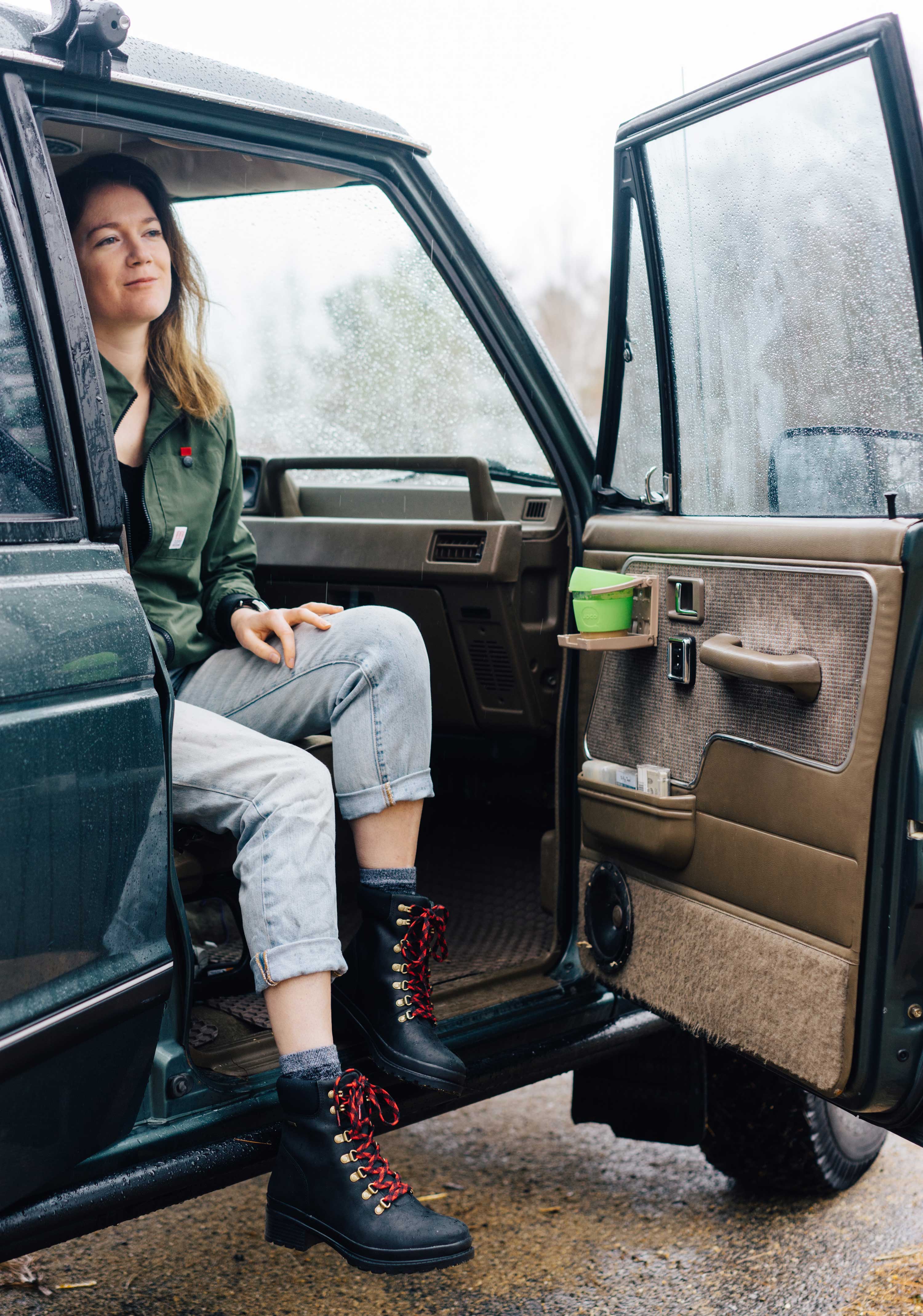
Jon Gaffney
Gale Straub, creator of the She Explores brand, which includes a podcast and a book
Gale Straub launched the blog and later podcast She Explores because she couldn’t find a site that catered specifically to women who love the outdoors. So, like all good entrepreneurs, she decided to make one.
Since she launched her website back in August 2014, she has interviewed over 300 inspiring women and published her first book.
Straub’s love of the outdoors began at a young age, growing up in Barnstead, New Hampshire. “My parents were a little bit into the back-to-the-land movement, so we had sheep and chickens and pigs and my mom would spin wool into yarn,” says Straub. “So a lot of my outdoor time as a kid was just playing in our backyard, picking potatoes out of the garden, that kind of thing.”
But her professional life didn’t start off in the sweet spot of creative content and travel.
When Straub graduated from Boston College in 2008 with a degree in psychology, she found herself in the middle of a market crash and scrambling for a job. Though she’d pursued creative interests like English and photography during school, she wanted a job that could provide financial stability in uncertain times. She ended up going back to school for accounting and worked first at a public accounting firm and then in venture capital.
Despite in turn in career paths, she never gave up on her creative passions. “Photography was something that was my escape from work and the thing that I loved doing when I wasn’t working,” says Straub. “Especially working in public accounting, because it has such long hours.”
Ironically, Straub says her accounting jobs helped her come out of her shell and learn to be more social, which has transferred well in her current role interviewing women about their experiences outdoors. “You carry all the things that you’ve learned with you wherever you go,” says Straub. And, of course, she still balances her own books.
For some time at her accounting day job Straub had been thinking about starting another project. She and her partner were saving up for a yearlong road trip around the U.S. in a van (inspired by the #vanlife movement), and she wanted to spend that time working on something personal and fulfilling. She published her first blog post the day they left on their journey.
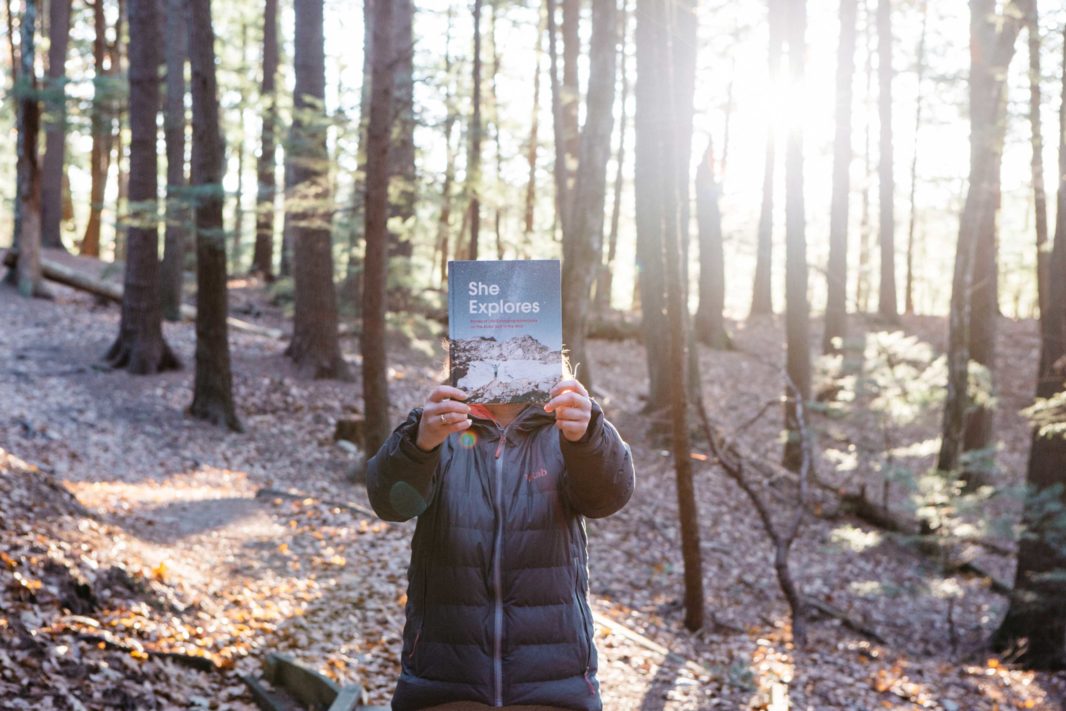
Courtesy Gale Straub
Gale Straub with her book, which published in March 2019
Straub says the most rewarding part of the job is when she gets good feedback from her interviewees. For her, it’s most important that they feel their story was well told. “When you impact one person there’s a ripple effect to that,” she says.
One of her favorite experiences along the way was interviewing women she met on the trails in the Torres del Paine National Park in the Chilean side of Patagonia. Straub used the trip as an example of why she loves outdoor travel. She says she made personal connections on the trails that wouldn’t be possible walking the streets of Europe or laying on a beach at a resort. You can hear those podcast episodes on She Explores.
Straub’s journey hasn’t been without challenges. She says there were many moments when she wasn’t sure She Explores could continue to be financially viable.
“There have been lots of times when I wanted to throw in the towel or thought ‘this isn’t practical to be doing,’” says Straub. She was fighting an uphill battle trying to get the project out there organically without using paid ads or similar techniques.
There have been lots of times when I wanted to throw in the towel or thought ‘this isn’t practical to be doing.’
But, the launch of the podcast in 2016 and a film commission by REI kept her creatively motivated. In 2017, she also co-launched Women on the Road, a sister podcast to She Explores run by Laura Hughes.
Earlier this year, in March, her first book, an aesthetically beautiful compilation of women’s outdoor stories, hit the stands.
Straub says it’s the victories that keep her going.
Most of all, she believes in the importance of allowing women space to share their stories. She say she doesn’t know where She Explores will end up, but she’s excited by the prospect of the many stories left to be told.
“If you don’t own your story and tell your story, someone else tells it for you. Someone else fills in the gaps. In terms of women and women’s stories, there’s just too much room for society to tell us what we can and can’t do,” says Straub. “The more identities that are reflected in these stories the less someone can make generalizations about us.”



 4 min read
4 min read